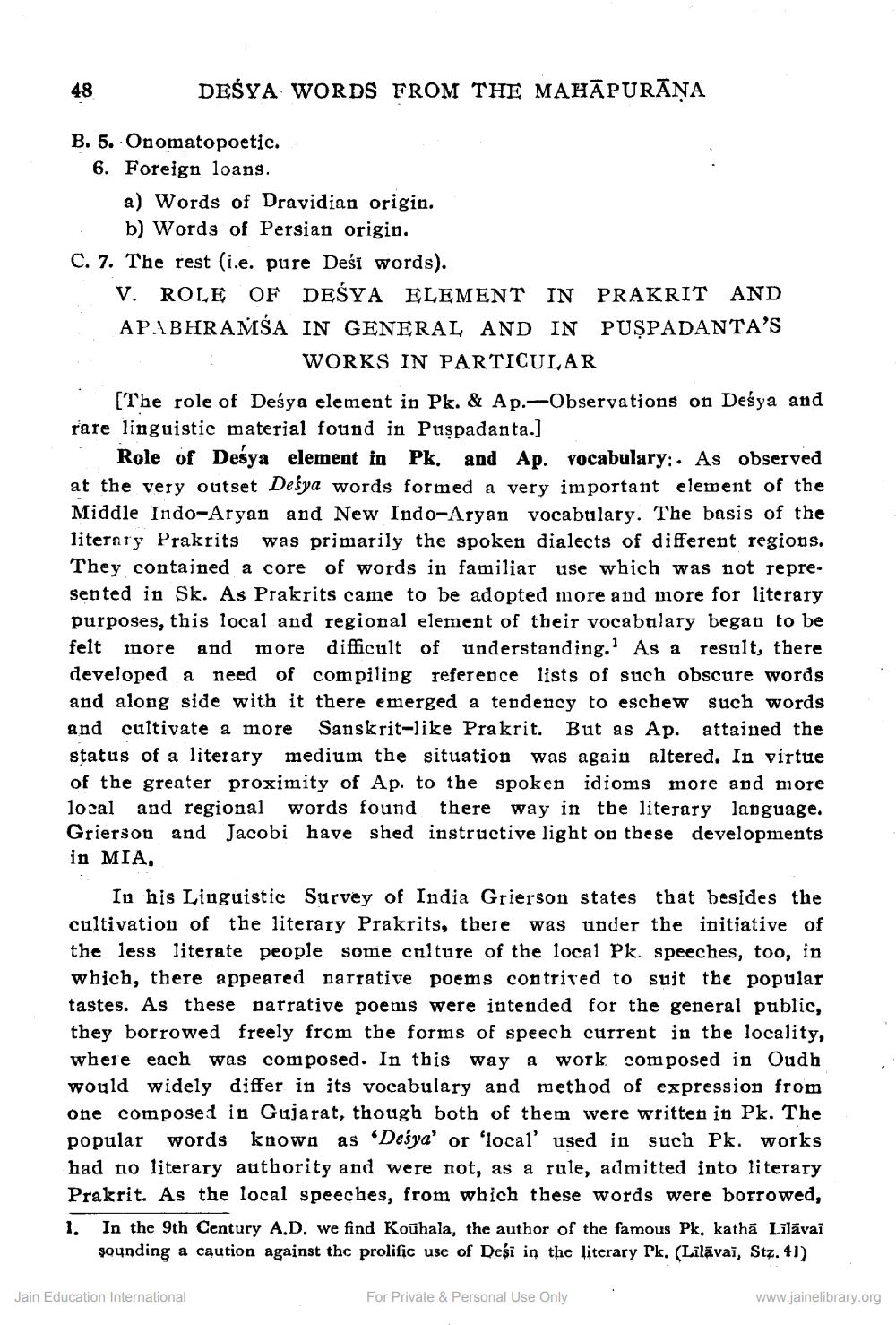________________
48
DESYA WORDS FROM THE MAHĀPURĀŅA
B. 5. Onomatopoetic.
6. Foreign loans.
a) Words of Dravidian origin.
b) Words of Persian origin.
C. 7. The rest (i.e. pure Desi words).
V. ROLE OF DESYA ELEMENT IN PRAKRIT APABHRAMSA IN GENERAL AND IN PUSPADANTA'S
WORKS IN PARTICULAR
AND
[The role of Deśya element in Pk. & Ap.-Observations on Deśya and rare linguistic material found in Puspadanta.]
Role of Deśya element in Pk. and Ap. vocabulary:. As observed at the very outset Desya words formed a very important element of the Middle Indo-Aryan and New Indo-Aryan vocabulary. The basis of the literary Prakrits was primarily the spoken dialects of different regions. They contained a core of words in familiar use which was not represented in Sk. As Prakrits came to be adopted more and more for literary purposes, this local and regional element of their vocabulary began to be felt more and more difficult of understanding. As a result, there developed a need of compiling reference lists of such obscure words and along side with it there emerged a tendency to eschew such words and cultivate a more Sanskrit-like Prakrit. But as Ap. attained the status of a literary medium the situation was again altered. In virtue of the greater proximity of Ap. to the spoken idioms more and more local and regional words found there way in the literary language. Grierson and Jacobi have shed instructive light on these developments in MIA,
Jain Education International
In his Linguistic Survey of India Grierson states that besides the cultivation of the literary Prakrits, there was under the initiative of the less literate people some culture of the local Pk. speeches, too, in which, there appeared narrative poems contrived to suit the popular tastes. As these narrative poems were intended for the general public, they borrowed freely from the forms of speech current in the locality, where each was composed. In this way a work composed in Oudh would widely differ in its vocabulary and method of expression from one composed in Gujarat, though both of them were written in Pk. The popular words known as 'Desya' or 'local' used in such Pk. works had no literary authority and were not, as a rule, admitted into literary Prakrit. As the local speeches, from which these words were borrowed, 1. In the 9th Century A.D. we find Kouhala, the author of the famous Pk, kathā Līlāvai sounding a caution against the prolific use of Desi in the literary Pk. (Lilāvai, Stz. 41)
For Private & Personal Use Only
www.jainelibrary.org




